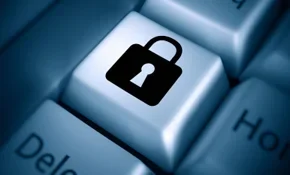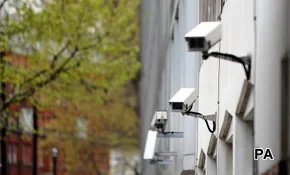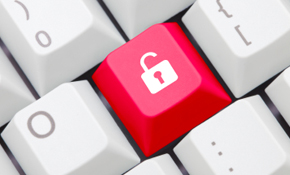The British Government recently debated the idea of having new legislation that would allow them to access the communications data (e.g. calls, emails, texts and website visits) of everyone in the UK. The Home Office says that the move is key to tackling crime and terrorism. However, others have criticised any such law as being an attack on civil liberties.
There are already examples of prosecutions based on internet content: Facebook was used to find and prosecute people who were involved in the summer riots, while more recently Twitter user Liam Stacey received a 56-day jail sentence for tweeting racist comments.
Would you support new legislation over this issue? What do you think about giving the police access to people's communications data?
The majority of participants who responded were concerned about the new legislation; worried it was a step too far in terms of personal freedoms, and wondered about the security of the information.
Participants were divided over the use of social media in criminal prosecutions, agreeing that it's important for people to consider what they are saying in any public space, but worrying about the implications of any law on personal freedoms and the freedom of speech.

Should the Government have access to all communications data, or not? And when and how should people be punished for what they say online?
Join the debate using the comment box below

What participants thought about new data privacy legislation...
1. I would OPPOSE the new legislation
The majority of participants were not in favour of data access laws, for various reasons:
- The loss of civil liberties and the human right to privacy
- Perceived similarities to George Orwell’s Big Brother state in his novel 1984
- Worries about the misuse of the data - either by the Government or by anyone who manages to get hold of it
- Concerns about what this could lead to - how far will the Government go?
Argument 1: It would mean a loss of freedom
“With draconian measures like this on the law books we would have no credibility when we call for places like China and Iran to loosen state controls; it would look even more like hypocrisy than it does now” Dee D, Yorkshire

“It is an attack on civil liberties, human rights and privacy of personal communication” Anon
“If I agree to this, I might as well agree to them bugging me everywhere I go, so they can hear everything I say” Chris, Edmonton
“The terrorism card is used every time to justify more and more intrusion into people’s private lives” Anon
“People have a right to privacy. You wouldn't approach people talking face-to-face in public and openly listen in on them, why should it be different online?” Rose, Somerset
“Why should the vast majority of the public be subjected to this intrusion when they are doing nothing to warrant it?” CJ, Winchester
“It would be an intrusion on everyday life” Jean, West Midlands
“The Government has no right to snoop in private affairs and we should be left to live our lives in peace. If George Orwell was alive, he would either be shaking in his boots or laughing because of his ability to foretell the future in 1984” Marcia M, London
Argument 2: My personal data would be unsecure
“Nobody should be allowed to intrude on my private life, especially not a government which manages to 'misplace' our personal information a lot” Anon

“They wouldn't just use it to catch terror suspects but to find private information about everyone” Anon
“I don't trust them not to use the data for non-disclosed purposes; and I don't trust them not to lose it” Tony, Salisbury
“Inevitably the state would use these powers in ways that were not originally intended” Anon
“The government has shown their complete lack of competence when it comes to having this kind of power. It is FAR too open to exploitation” Robert S
“They say it's to tackle terrorism, but all that information can be very dangerous to have- what if terrorists get a hold of it?” Conleth D, Belfast
“The Government cannot be trusted with people’s data; they either lose it, or sell it to big businesses and criminals” Rick, Rotherham
“There is the danger of misuse by Government agencies, and the possibility of hacking by criminals” Anon
“No government or government agency anywhere at any time can be entirely trusted not to abuse this” Peter J, London
2. I would SUPPORT the new legislation
Those who would support the legislation largely do so because:
- Innocent people have nothing to worry about – if you are doing nothing wrong then you will not be in any trouble
- So much of our personal information is accessed anyway, at least this way it will be used for good
- The Government is right to update its policy – this reflects evolving challenges to security in the UK
- Why would the Government be interested in what everyone is doing? It would be a waste of time to snoop on people who aren’t a threat
Argument 1: It seems necessary
“If someone is doing something illegal then it makes sense that all possible means are used to detect this” Bob, Perth

“It is a valuable tool to ensure national security and ensure the safety of our communities. However this must be in balance with the right to privacy and freedom of speech of individuals” Anon, London
“This info will only be accessed in the event that a person is under investigation by GCHQ or MI5 for terrorist or related national security risk activities. If this is what is needed to prevent terrorism and loss of innocent life in the UK then I am fully in agreement” Will T, London
“I wish I didn't support this legislation, but sadly it is a sign of the times i.e. terrorism, internet child grooming by paedophiles, that I do” Anon
“It is the easiest & most efficient way of solving/preventing crime, and giving the courts sufficient information to ensure a conviction” Anon
“If they have good reason, it makes sense that they are able to access all types of media that an individual may have used” Anon
Argument 2: It won’t affect me
 If you're not doing anything wrong then there is nothing to worry about” GD, Warwickshire
If you're not doing anything wrong then there is nothing to worry about” GD, Warwickshire
“The Government would likely use the material of profiled individuals who could pose a risk to the citizens of this country – they are not going to use it to snoop on people just to amuse themselves!” Holly, Sheffield
“Companies seem to be able to do this anyway so I’d rather the elected government was able to as well for more legitimate means than commercial” Tori, Medway
“People like me who don't go on dodgy websites etc., have nothing to worry about – really don't care about anyone seeing I’ve been on Facebook, or BBC News!” Anon
“If any new legislation helps to protect my freedom and there are the correct check and balances built into the legislation, the only ones to fear the legislation are those that want to take my freedom away” David, Tamworth
“Personally I do nothing of any interest to the Government – and that is probably the case for most people” Anna, Devon
Getting tough on Tweets: participants' views on prosecuting social media comments
Making abusive comments, inciting criminal behaviour, committing contempt and libel, or using social media to communicate 'menacing' messages – all activities that could find individuals falling foul of the law in the online arena.
But what did PoliticsLab participants think about punishments for comments made online?
Argument 1: Police SHOULD prosecute over social media comments
“Using social media is just as destructive as any other media” GD, Warwickshire

“If it happened face-to-face, it would be considered a crime” Anon
“It’s just as bad as saying it to them in person if not worse, as there is a permanent record of it” Anon
“People need to realise they can’t just say what they want on Twitter – you should still be accountable for what you say” Anon
“The law should be the same for all forms of expression. It’s worse on social websites because it reaches a larger audience as well” Anon
“I think this is important because the internet cannot become some lawless place where people feel nihilistic behaviour will be tolerated” Anon
“The justice system needs to be brought up to date. Virtual crime is the reality of modern life” Anon
“The laws of this country provide protection for people against abuse and harassment. The ability to prosecute based on comments made on social media sites is crucial in order to tackle discrimination, hate crimes, and crimes such as stalking” Anon
Argument 2: Police SHOULD NOT prosecute over social media comments
“Unless there are serious threats made, social media sites are methods of expression and should be considered as such” Anon, London

“We are supposed to have freedom of speech in this country and if you have an opinion you should be able to express it” Jules, Poole
“The police should be concentrating on what I think are their core duties: murders, general crime, rapes, child molesting and of course protecting the general public” Alastair, West Lothian
“People should be prosecuted for ACTIONS, which can involve conspiracy etc., but not for opinions - no matter how repulsive or crazy” KV, Holloway
“All social networks have the facility to report such persons for removal from the site and an individual has the facility to block any such person. There should be no police involvement required” Anon
“If this is a crime, how come hatred and prejudice whipped up by tabloid journalists against immigrants, the unemployed and disabled is acceptable?” Dave E, Midlands
“I feel there are far bigger issues that need to be addressed in the courts, rather than prosecuting some idiot's ranting. I feel it's a waste of taxpayers' money” Anon

Should the Government have access to all communications data, or not? And when and how should people be punished for what they say online, if at all? Join the debate below

Follow and discuss: @YouGovLabs on Twitter







